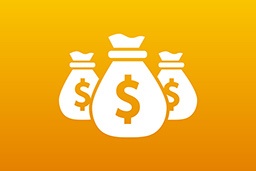Last night (June 30), with the deadline to apply for a loan pursuant to the Paycheck Protection Program set to expire—and with that nearly $130B in allocated funds being left untapped and on the table—the U.S. Senate passed an extension of the program to August 8. Whether the extension passes in the U.S. House of Representatives and is then signed into law is likely but remains to be seen; a House vote is pending as of this writing. In the meantime, attention continues to turn to the loan forgiveness process.
Toward that end, Michelman and Robinson reported on the streamlined loan forgiveness applications recently released by the Small Business Administration. Since then, the SBA in association with the U.S. Department of Treasury posted new Interim Final Rules (IFRs), including one relating to loan forgiveness and loan review procedures, and another concerning additional eligibility revisions. By way of this alert, M&R takes a look at the important provisions found in these IFRs which, unlike certain guidance and FAQs issued by the SBA in consultation with Treasury, have the force of law and must be followed unless and until they are overturned, struck down, or rescinded.
Q. What changes do the latest IFRs make with respect to loan forgiveness and loan review procedures?
A. The IFR found at 85 F.R. 38304 contemplates the changes made to the CARES Act and the PPP by the Paycheck Protection Program Flexibility Act (explained here), as well as the EZ and updated long-form loan forgiveness applications. Among various other things, the IFR clarifies that:
- A borrower may submit a loan forgiveness application any time on or before the maturity date of the loan—including before the end of the covered period—once the borrower has used up all of its loan proceeds
- If a borrower does not apply for loan forgiveness within 10 months after the last day of the covered period, or if the SBA determines that the loan is not eligible for forgiveness (in whole or in part), PPP loan payments will no longer be deferred and the borrower must begin paying principal and interest
- In general, payroll costs paid or incurred during the covered period are eligible for forgiveness. A borrower can elect one of two available covered periods—either 24-weeks from the date the lender disbursed the PPP loan, or 8-weeks for PPP loans received before June 5, 2020
- There are caps on the amount of loan forgiveness for payroll costs associated with compensation paid to business owners and self-employed individuals
- Non-payroll costs are eligible for forgiveness if they were (1) paid during the covered period, or (2) incurred during the covered period and paid on or before the next regular billing date, even if the billing date is after the covered period
- The PPP Flexibility Act specifically requires certain reductions in a borrower’s loan forgiveness amount based on cuts made to the workforce (read: full-time equivalent employees) or employee salary and wages; however, this is subject to an important statutory exemption for borrowers that have eliminated these reductions on or before December 31, 2020
Q. What changes do the recent IFRs make concerning PPP eligibility?
A. Whether or not the window to procure PPP loans is extended, changes regarding eligibility remain relevant, particularly to borrowers that have already received loan proceeds. As such, the IFR found at Docket No. SBA-2020-0039 is of interest. It echoes the following eligibility revisions made to the CARES Act and the PPP by the PPP Flexibility Act and other amendments:
- To the extent an applicant is ineligible for a PPP loan if that would-be borrower owns 20% or more of the equity of the applicant and is presently subject to an indictment, arraignment, or formal criminal charge in any jurisdiction, that restriction is limited to pending felony offenses only
- To the extent an applicant is ineligible for a PPP loan if that would-be borrower owns 20% or more of the equity of the applicant and is on probation or parole, that restriction is limited to individuals whose probation or parole commenced within the last five years for any felony involving fraud, bribery, embezzlement, or a false statement in a loan application or an application for federal financial assistance, and within the last one year for other felonies
For those interested, a list of IFRs, guidance, and FAQs related to the SBA’s PPP and Economic Injury Disaster Loans (EIDLs) can be found here. Of course, if you have any questions about the SBA’s updated IFRs, or would like to participate in M&R’s “PPP Loan Analysis Program,” do not hesitate to contact us at your convenience.
This blog post is not offered, and should not be relied on, as legal advice. You should consult an attorney for advice in specific situations.

